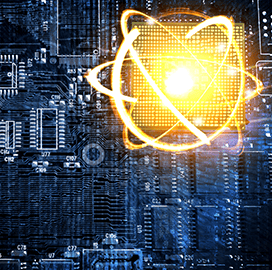
Single-electro qubit
Argonne Researchers Extend Qubit Coherence Time, Enabling More Quantum Operations
A team of researchers at Argonne National Laboratory has extended the coherence time for a single-electro qubit to 0.1 millisecond, an increase from the previous record of 0.1 microsecond. The work involved encoding quantum information in the electron’s motional or charge states.
The laboratory noted that while the extension is a short period of time, adding 0.1 millisecond will enable a qubit to perform thousands of operations, Science Daily reported.
Dafei Jin, the lead scientist at Argonne and a professor at the University of Notre Dame, explained that electron charge qubits offer simplified fabrication and operation and compatibility with existing infrastructures for classical computers. “This simplicity should translate into low cost in building and running large-scale quantum computers,” he added.
Trapping a single electron on an ultraclean solid-neon surface was crucial for prolonging the coherence time. Argonne stated that neon is resistant to environmental disturbances and does not react with other elements.
The team discovered that two-qubit systems can be linked to the same superconducting circuit to enable information transfer via the circuit. “This marks a pivotal stride toward two-qubit entanglement, a critical aspect of quantum computing,” Argonne said.

Category: Federal Civilian




